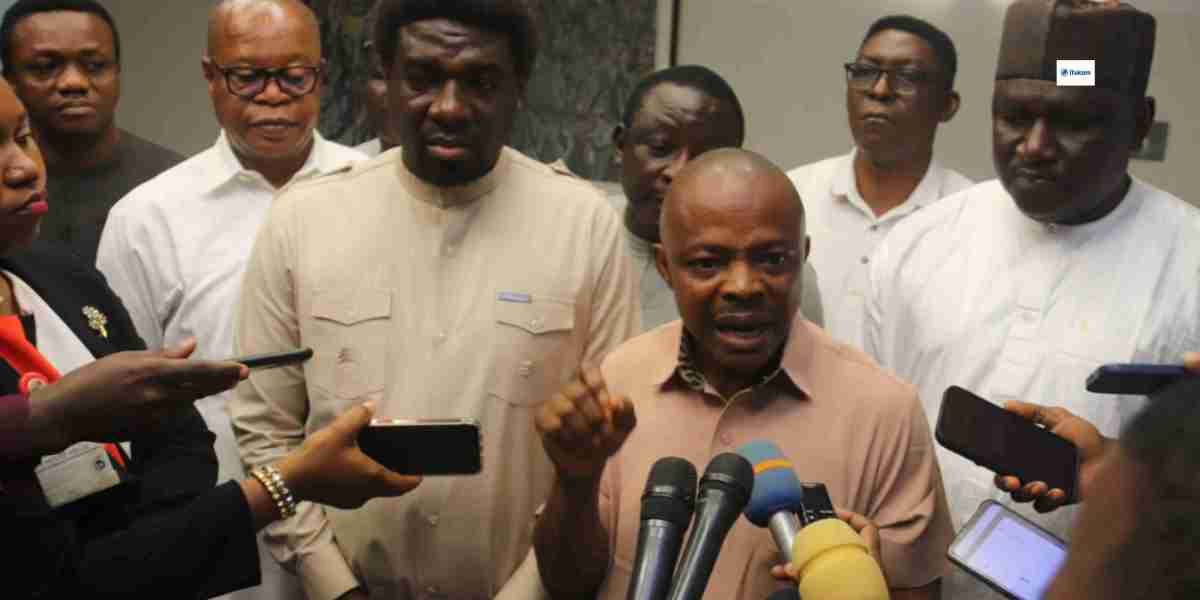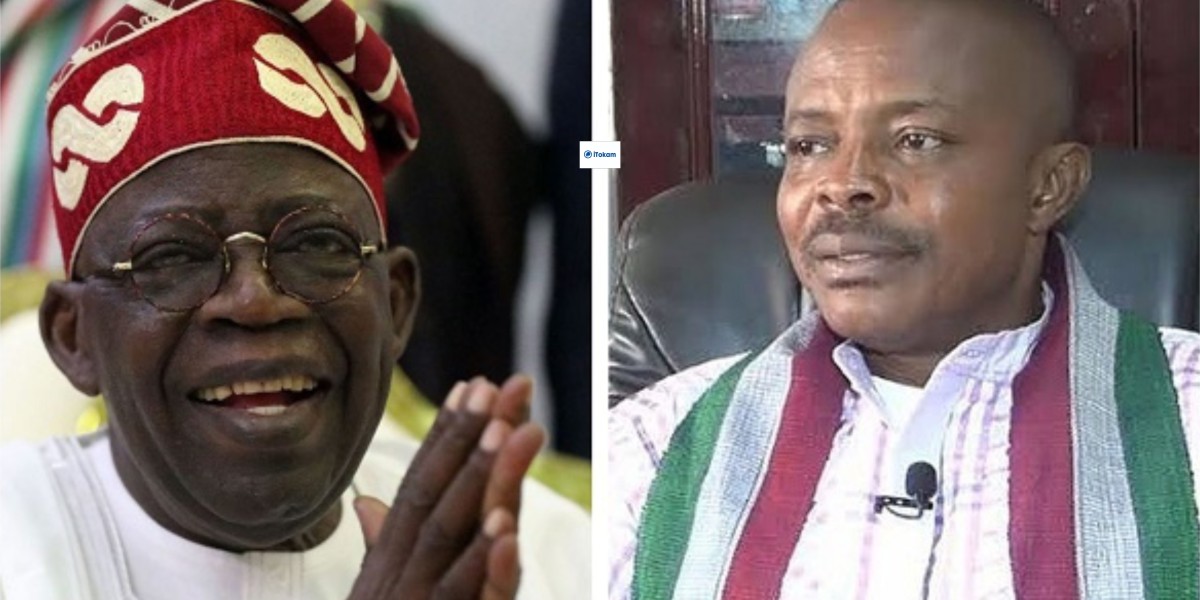Labour sources informed The Guardian that neither the Presidential Steering Committee nor its subcommittees had met to finalize the framework since June 19, when the President established them.
After the President intervened, subcommittees were formed to undertake FG's palliative effort in Cash Transfers, Social Investment Programme (SIP), Cost of Governance, Energy, and Mass Transit and Housing. The committees had eight weeks to finish their work to speed up the framework's implementation to help Nigerians cope with petrol subsidy elimination.
This resulted from President Tinubu's closed-door meeting with NLC and TUC officials during a statewide organized labor protest.
On Thursday, the National Economic Council (NEC) approved N5billion for each state to offset fuel subsidy reduction until a more representative palliatives plan was considered. The Council, presided over by Vice President Kashim Shettima and attended by state governors and other NEC statutory members at the State House in Abuja, made the decision.
The money would buy grains and five trucks of rice for each state as palliatives. The NEC also authorized states to receive 40,000 maize bags. Organized labor reacted quickly to the Federal Government's N5 billion palliative handout to states to offset subsidy elimination.
NLC President Joe Ajaero said the government's decision to provide governors N5 billion as a palliative to their states contradicts its stance that governors should not drive state processes because they lack credibility. He stated the Governors' Forum's decision was not a result of social discussion or negotiation and that the government was disrespectful of its committees. “From our past experiences, governors should not be allowed to drive the process in the states due to trust deficits.
“Perhaps the government is giving N5 billion to state boys. Their actions indicate a disregard for agreed solutions with Nigerian bargaining mechanisms.We will shortly evaluate our government engagement based on its actions, indicating disregard for committees and pledges.We expect the government to keep its commitments. If this is done, trust and confidence will drive social discussion and improve results for workers, citizens, and the nation.
Nigerians are waiting for their share while governors have theirs. If they reject, Nigerian workers must battle for themselves. As sovereigns, we own Nigeria and will mobilize to ensure that those we elect into government follow us because it is in our interest that they serve and protect us. “We will hold them accountable,” he vowed.
The National Economic Council (NEC) announced last week that the federal government has authorized N5 billion for each of the 36 states.According to Chris Onyeka, a presidential steering committee (PSC) member, the committees have not met. He said the government should have enabled social dialogue in the palliative talks, which remained a democratic platform to guide its actions and policies, even though labor agreed with Tinubu to restructure the committee.
When we saw him on nationwide protest day, he said the committee wasn't meeting his goals and pledged to reform it. However, the committee has not been reformed and activated.”
Also Read: NLC Defies Truce, Proceeds On Nationwide Protests Over Rising Hardship
NLC Assistant General Secretary Onyeka said: “We will not wait endlessly for the government. When we feel time has been abused, we will take action to restore rationality to our government engagement on this issue.”
Another member of the committee on cost of governance and deputy president of Trade Union Congress of Nigeria (TUC), Dr. Tommy Okon, told The Guardian that nothing had happened since the last meeting with President Tinubu and organized labor, which led to the suspension of protests and the withdrawal of contempt charges by the AG.
“We are still waiting,” he remarked. Unheard from the government. The protest was halted by Mr. President, and the statewide strike was canceled after the Ministry of Justice dropped contempt charges. “The fuel subsidy removal has lingering effects. The masses suffer, worker salaries remain unchanged, and the government does nothing. Organized labor offered the administration an ultimatum that ended yesterday, August 19, but nothing was done.
It demonstrates the government was unprepared, he added. Any government that is ready to take on responsibilities and knows fuel subsidies will be eliminated should put apparatus in place to buffer repercussions.
Ajaero accused the Federal Government of failing to shield Nigerians from its policies' economic hardships. He claimed the government frustrated and abandoned its social dialogue committee with workers' bodies.
While the committee hadn't met, the administration took unilateral acts and programs that destabilized Nigerians' peace of mind.
When negotiations began, the NLC chairman pledged that if the government embraced and implemented the solutions and recommendations, they would help remove fuel subsidies. There is an encouraging note that something may happen if we all sit down and look at the committees carefully and come up with government-adopted answers and suggestions.
“But between working on the committee, making submissions, and adopting them, implementation becomes an issue because we know that previous committees made recommendations that were not followed. If they were followed, we'd be different.
In the last administration, we agreed on CNG and what to do. If they had introduced CNG, we wouldn't be here; Nigerians won't care because we have an alternative. The challenge is implementing what has been proposed, he said.
TUC Secretary General Nuhu Toro also believed the presidential steering committee investigating TUC requests will produce fruitful suggestions. Director-General of the Nigeria Employers' Consultative Association (NECA) Adewale-Smatt Oyerinde said that there must be structure to push and accelerate palliative care for citizens.
During negotiations, several debates must have been held, and labour and the Federal Government must have communicated their concerns and limits. He encouraged the government to address the restraints encountered by organized enterprises and inform Nigerians about palliative conversations instead of keeping quiet.
“We cannot deny that everything, including businesses, is choking, but we still have to put pressure on government to deal with those constraints because they should inform Nigerians rather than keep silent.
Organized businesses continue to advise the government on policy and share Nigerian issues. Shutting down the nation won't fix it. Our aim is to engage, dialogue, and urge government from all angles to act immediately.”
Dr. Muda Yusuf, CEO of the Centre for the Promotion of Private Enterprise (CPPE), said the government needed to interact with labor more to give labour confidence in the bargaining process.
“We don't want a strike threat to wake up the government. Preventing strikes by engaging productively and timely and sticking to negotiating timeframes is excellent. He suggested Labour should sit down and agree on their demands warmly.
Former President of Human Capital Providers Association of Nigeria (HuCaPAN) and licensed informal sector recruiter Aderemi Adegboyega advised the government to buy and sell buses at lower costs. He opposed giving households palliative money but argued the government should provide infrastructure to lower prices. He said, “Government should review wages across sectors, provide and fuel buses at government expense, provide railway transportation and make sure roads are motorable.”
Professor Tukur Muhammad-Baba, an Arewa Consultative Forum (ACF) leader, has criticized the blanket distribution of N5billion to all 36 states without addressing their unique socio-economic issues.
Muhammad-Baba, ACF spokesman and sociology professor, claimed that Lagos, Oyo, Kano, and Bayelsa states should not receive the same amount because their demographics and statistics varied. “I am not happy about such blanket distribution of N5 billion to each state. First, the distribution is unfounded. Are you allocating the same amount to Bayelsa, Lagos, Oyo, and Kano states to find poor people and expect it to work?
“This shows that we are doing things like what grammar people call ‘hunter’s pack’,”. You just announced that without planning or strategizing. There's no need to provide states equal funding.
Poor people are a matter of proportion; Nigeria has about 140 million multi-dimensionally poor people. Lagos, Oyo, and Kano have different poverty rates than Bayelsa, Taraba, and Jigawa. What's the basis? What will be the impact?It comes with 30,000 rice sacks. How many will that reach? The latest National Population Commission estimate puts Sokoto's population at above seven million. How many people would 30,000 rice sacks feed?
“The government has no plan. Unfortunately, the government's policy is a disaster. You must help the poor, but you must do so in a way that is not a drop in the ocean, the ACF representative said.





